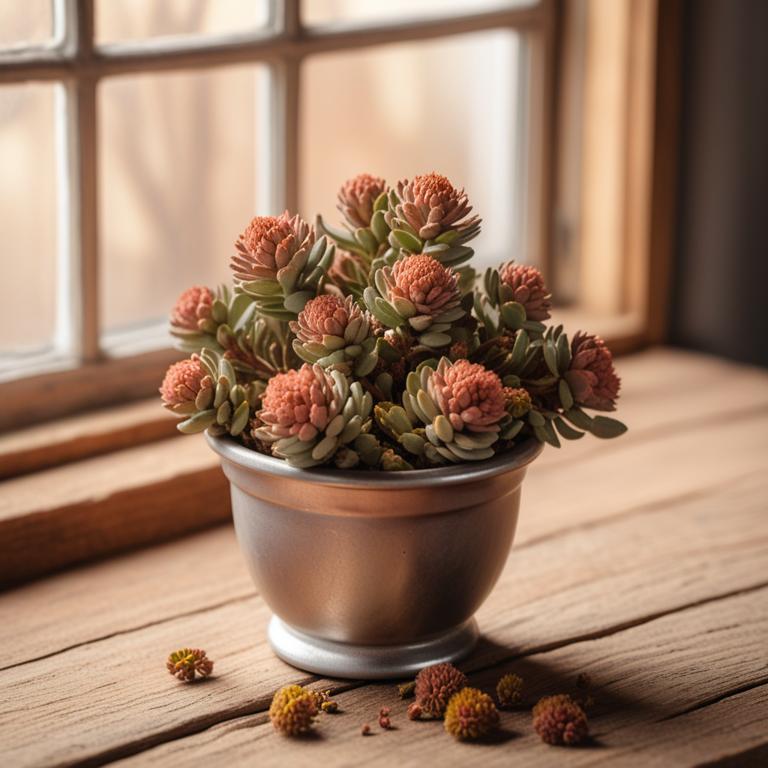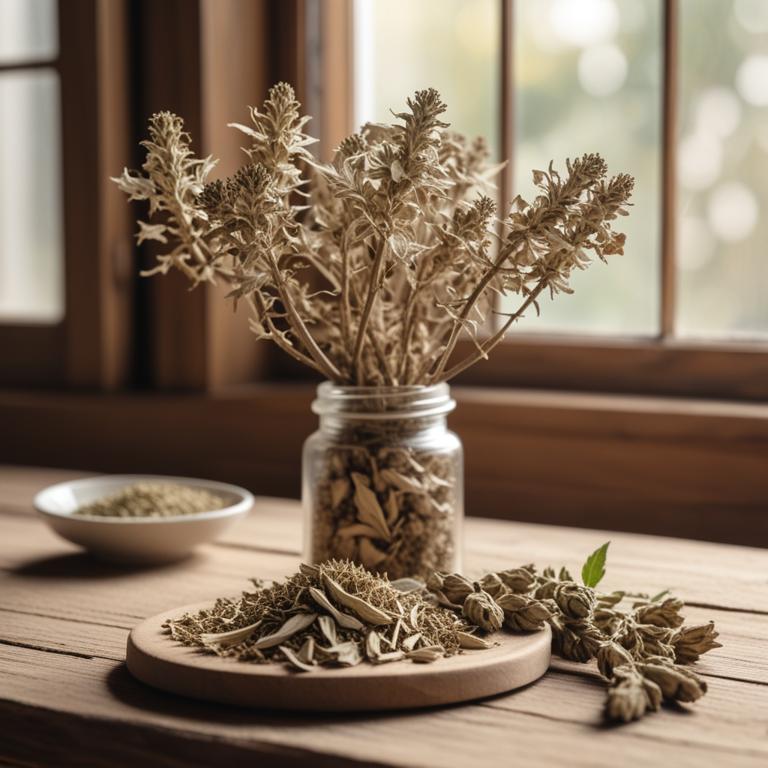Updated: Dec 1, 2024
Overcoming Hot Flashes: Causes, Medicinal Herbs, and Herbal Preparations

Hot flashes are sudden feelings of heat that can affect women, especially during menopause.
They can leave you sweating, dizzy, and feeling like you're in a hot room, even if it's cold outside. These episodes can happen at any time, day or night, and can be embarrassing and disrupt your life. Hot flashes are caused by a drop in estrogen levels, which can also lead to other symptoms like mood swings and vaginal dryness. Herbal remedies can help alleviate hot flashes. Some of these herbs, such as black cohosh and dong quai, have been used for centuries to ease menopausal symptoms.
These herbs may help regulate hormone levels and reduce inflammation in the body, which can contribute to hot flashes. You can prepare these herbs in various ways, such as drinking teas, taking capsules, or applying them topically as creams or oils. Black cohosh tea, for example, can be made by steeping the dried root of the black cohosh plant in hot water. Dong quai tea can be made in a similar way, using the dried roots and leaves of the dong quai plant. Some women also use herbal supplements like chasteberry and red clover to help manage hot flashes.
These herbs may be more effective when used in combination with other therapies, such as hormone replacement therapy or lifestyle changes.
Table of Contents
- What are the underlying causes of hot flashes?
- What are the benefits of herbal treatment for hot flashes?
- What are the main herbal treatments for hot flashes in medical science?
- What are the top herbal remedies used to manage hot flashes?
- Are there specific herbs that should be avoided by people who experience hot flashes?
- FAQ
What are the underlying causes of hot flashes?
The main causes of hot flashes are a mix of physical and emotional factors.
One of the most common causes is menopause, a natural process in women where hormone levels drop, especially estrogen. This decrease in estrogen can cause hot flashes as the body tries to regulate its temperature. Hormonal imbalance is another reason, where levels of estrogen and progesterone are not in sync, leading to hot flashes.
Estrogen deficiency specifically can cause hot flashes because estrogen helps regulate body temperature. Progesterone deficiency can also contribute to hot flashes as it helps with hormone balance. Some people may experience hot flashes due to thyroid conditions, such as hypothyroidism, which affects the production of thyroid hormones that regulate body temperature.
Finally, anxiety can trigger hot flashes as the body's "fight or flight" response can cause a sudden surge in body temperature.
What are the benefits of herbal treatment for hot flashes?
Using herbs to help with hot flashes can be really beneficial.
One of the main advantages is that they can help reduce the frequency and severity of these symptoms. Herbs can also help ease anxiety and stress, which are often linked to hot flashes. Some herbs can even help regulate body temperature, making you feel cooler and more comfortable.
Additionally, these natural remedies can be a great alternative to prescription medications, with fewer side effects. Many herbs have been studied and used for centuries to help balance hormone levels, which can contribute to hot flashes. They can also promote better sleep, which is often disrupted by hot flashes.
By using herbs, you may be able to find relief from hot flashes without relying on medication.
What are the main herbal treatments for hot flashes in medical science?
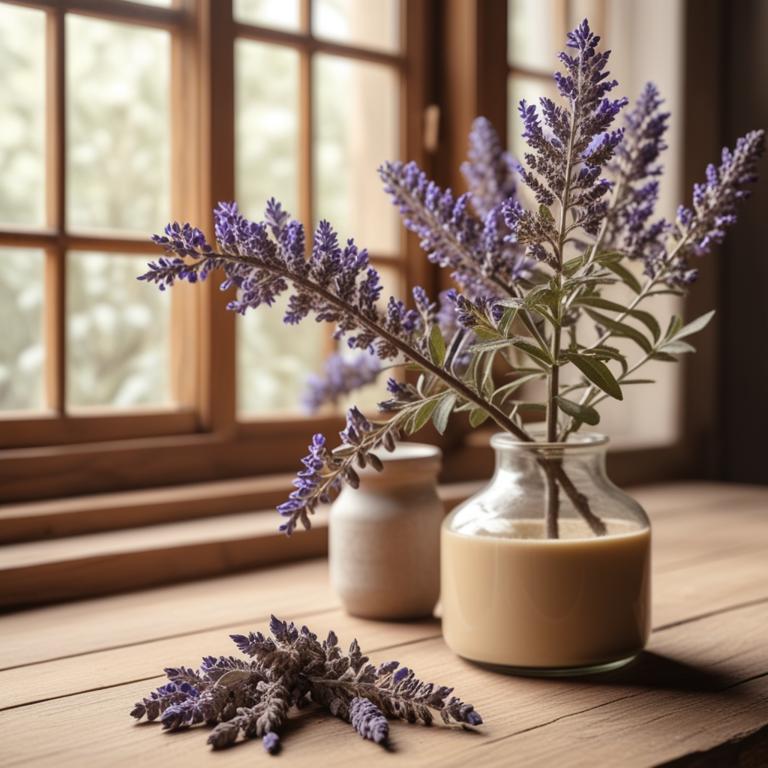
Herbs have been used for centuries to help manage hot flashes, and they can be a natural and effective way to find relief.
One herb that's particularly helpful is Vitex agnus-castus, also known as chasteberry. It's thought to help regulate hormonal imbalances that can contribute to hot flashes, and it's also been shown to reduce the frequency and severity of these symptoms. Another herb that's been used to help with hot flashes is Cimicifuga racemosa, or black cohosh. It's believed to have anti-inflammatory properties, which can help to soothe the body and reduce hot flashes. Angelica sinensis, or dong quai, is also sometimes used to help with hot flashes.
It's thought to have a cooling effect on the body, which can help to reduce the heat and discomfort associated with hot flashes. Avena sativa, or oat straw, is another herb that's sometimes used to help with hot flashes. It's thought to have a calming effect on the body, which can help to reduce stress and anxiety that can contribute to hot flashes. Finally, Lavandula angustifolia, or lavender, is a herb that's often used to help with relaxation and stress relief. It's thought to have a cooling effect on the body, which can help to reduce the heat and discomfort associated with hot flashes. It's worth noting that the exact way in which these herbs work is not yet fully understood, and more research is needed to confirm their effectiveness.
However, many women have reported finding relief from hot flashes using these herbs, and they may be worth trying as a natural alternative to hormone replacement therapy.
What are the top herbal remedies used to manage hot flashes?
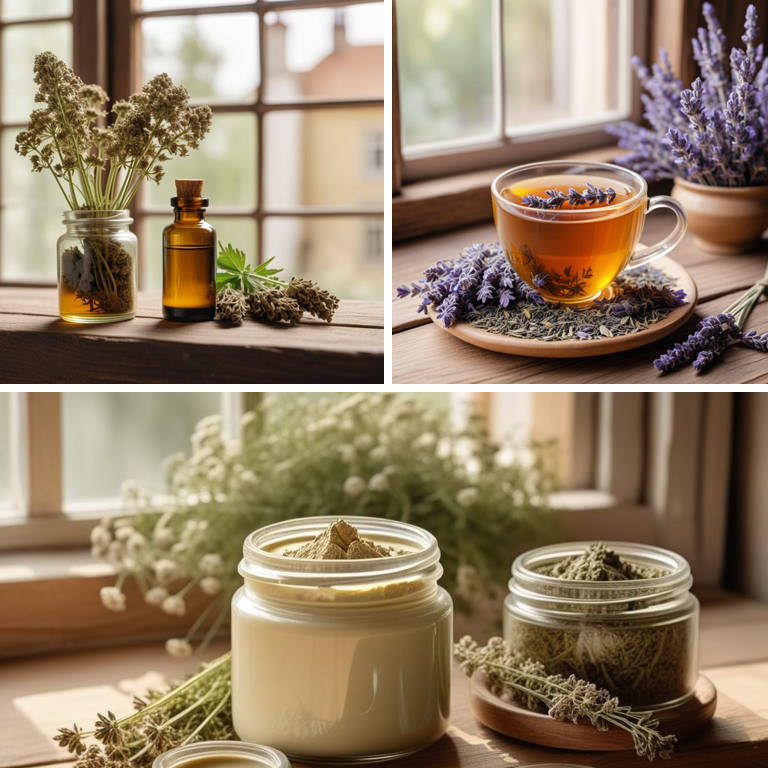
Herbal preparations can be very helpful in managing hot flashes.
A tincture is a concentrated liquid extract of herbs that can be taken in small doses to ease hot flash symptoms. The concentrated form of tinctures allows for fast absorption into the body, making them a popular choice for women who need quick relief from hot flashes. A decoction is a liquid herbal preparation made by simmering herbs in water to release their active compounds. Decoctions are particularly effective for herbs that are difficult to extract, like ginseng and ginger, which can help to calm the body and reduce hot flash frequency. Herbal teas are also a great option for managing hot flashes.
They are easy to make and can be sipped throughout the day to provide ongoing relief. Herbal teas like black cohosh and red clover are specifically known for their ability to ease hot flash symptoms and promote hormone balance. An herbal infusion is similar to a tea, but it's made by steeping herbs in hot water for a longer period of time. Infusions are great for delicate herbs like peppermint and chamomile, which can help to calm the body and reduce stress that can trigger hot flashes. Herbal creams are topical preparations that can be applied directly to the skin to provide relief from hot flashes. These creams often contain cooling herbs like mint and yarrow, which can help to cool the skin and reduce the sensation of heat.
They can also be used in combination with other herbal preparations to provide extra relief from hot flashes.
Additional Resources:
Are there specific herbs that should be avoided by people who experience hot flashes?
If you're experiencing hot flashes, it's best to avoid certain herbs that can make them worse.
Ephedra sinica, for example, is known to raise your body temperature and increase heart rate, which can trigger more hot flashes. Panax ginseng is another herb to be cautious of, as it can stimulate your body and cause your blood vessels to dilate, leading to increased heat and sweating.
Ginkgo biloba might seem like a harmless herb, but it can also cause blood vessels to expand, making hot flashes more frequent. Catha edulis, also known as khat, is a plant that can cause your heart rate to rise and your body temperature to increase, which can be problematic for people with hot flashes. Capsicum annuum, or cayenne pepper, can also trigger hot flashes because it contains capsaicin, a compound that can cause your blood vessels to dilate and your body temperature to rise.
These herbs can be too stimulating for people who already experience hot flashes, so it's best to avoid them or use them with caution under the guidance of a healthcare professional.
FAQ
Are there any specific herbs that can prevent hot flashes?
Some herbs, like black cohosh and red clover, are thought to help ease hot flashes.
Black cohosh is believed to balance hormones, while red clover is rich in isoflavones, which may reduce hot flash frequency and severity.
These herbs have been studied for their potential benefits in menopause symptoms.
Is it safe to use herbal remedies for hot flashes during pregnancy?
It's generally not recommended to use herbal remedies for hot flashes during pregnancy.
Some herbs can cause problems or interact with other substances in the body. For example, red clover may affect blood pressure, and evening primrose oil may thin the blood.
It's best to talk to your body about what it needs naturally.
Are there any herbs that can reduce the frequency of hot flashes?
Some women find relief from hot flashes with black cohosh, a plant-based remedy.
Black cohosh is thought to help stabilize hormone levels, which may reduce the frequency of hot flashes.
It's often consumed as a supplement, but its effectiveness can vary from person to person, so results may differ.
Can i combine different herbal remedies for hot flashes?
You can combine different herbal remedies for hot flashes, but be careful.
Some herbs may interact with each other or with other medications. For example, combining black cohosh with soy or red clover may increase their effectiveness.
However, combining herbs like ginseng with black cohosh may not be a good idea.
Related Articles
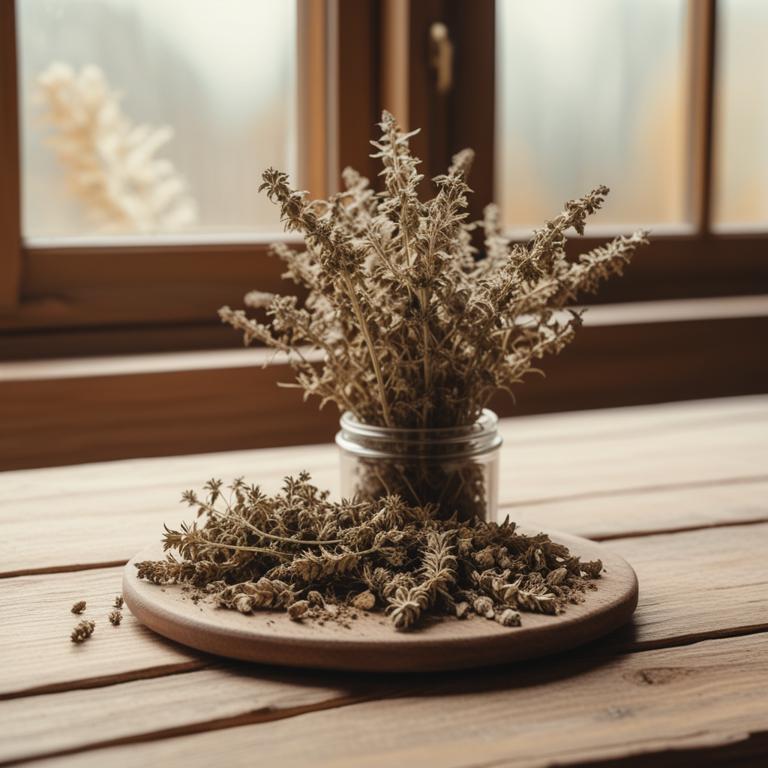
Hormonal Imbalance: Causes and Prevention with Herbal Medicinal Preparations
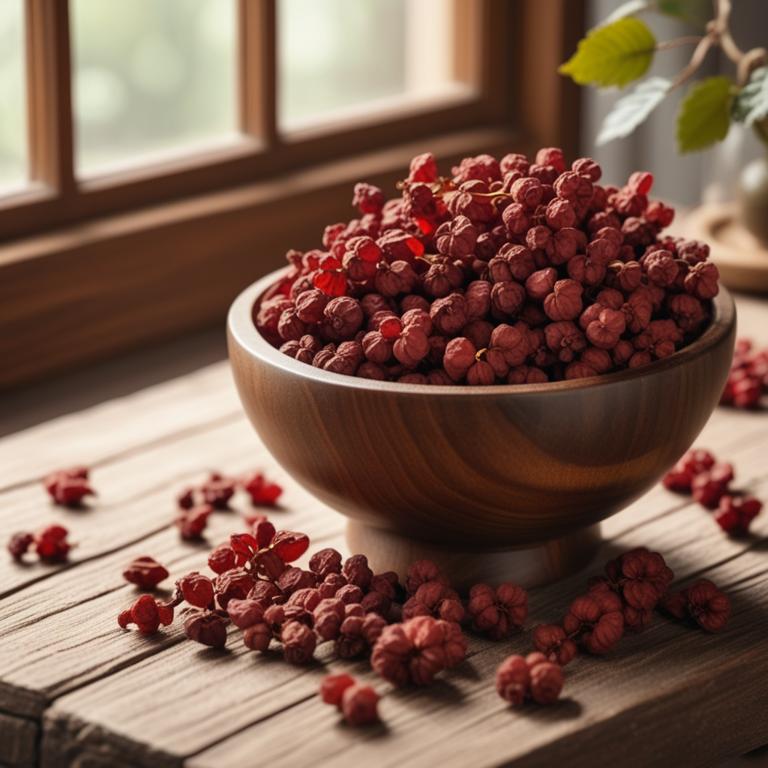
The Holistic Approach to Hyperthyroidism: Causes, Herbal Remedies, and Natural Treatments
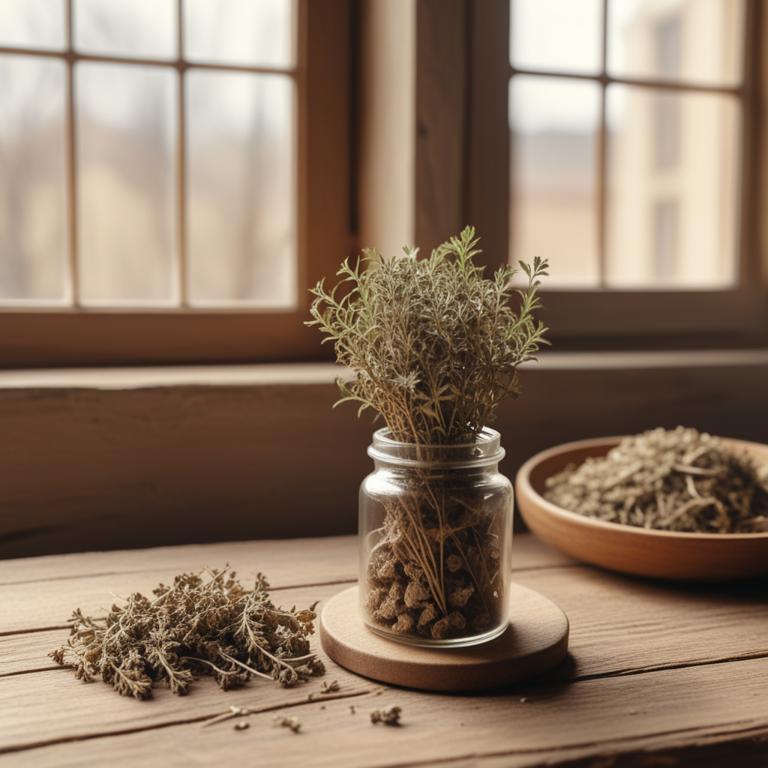
Understanding Hypothyroidism: Causes, Remedies, and Herbal Treatments
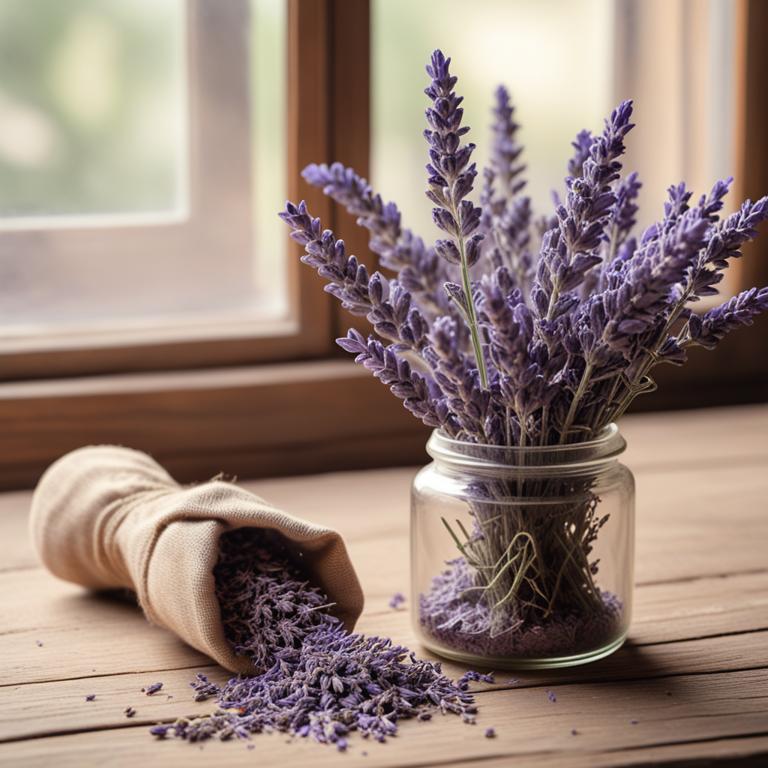
Overcoming Hot Flashes: Causes, Medicinal Herbs, and Herbal Preparations
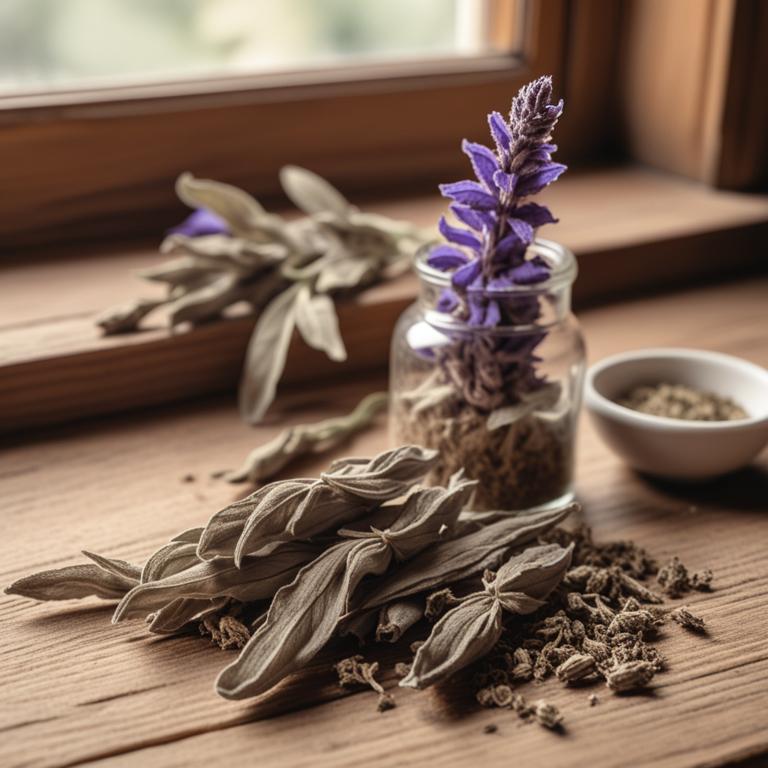
Managing High Cholesterol with Medicinal Herbs and Proven Preparations
